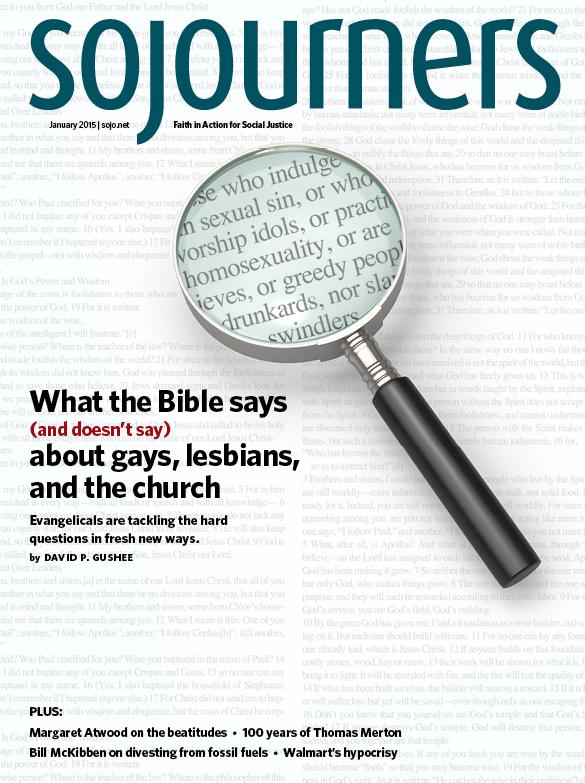
Sojourners Magazine: January 2015
In recent decades, questions around sexuality—and in particular around people with same-sex attractions—have been among the most divisive issues for the church. Congregations, conferences, and denominations (and families!) have been pulled apart by differences of interpretation, belief, and practice among Christians and church bodies. Gay Christians have borne the destructive and sometimes violent brunt of these differences.
Many who hold different views on these matters share a deep commitment to the Bible but differ in how to read and understand what the Bible says or means. Those who consider themselves as having a “high” view of scripture have tended to understand the Bible as clearly condemning all homosexual acts. They see those who have come to different biblical conclusions as having a “lower” view of scripture.
The supposedly well-defined lines that delineated that dichotomy have become blurred in recent years. Evangelical scholars—with an unequivocal commitment to biblical authority—are beginning to question the traditionalists’ interpretations of the Word on these matters. Well-regarded and deeply respected evangelical scholars are finding evidence in their read of scripture that the few relevant biblical passages have very little, if anything, to do with contemporary same-sex covenant relationships based on mutuality, love, respect, and fidelity.
David P. Gushee is one of those highly esteemed evangelical scholars. In his new book,Changing Our Mind, the basis of this month’s cover article, Gushee carefully examines all of the pertinent biblical passages and concludes that the church would be well served to revisit its traditional interpretation with fresh eyes and open hearts, enabling us to have a civil, charitable, respectful, and prayerful discourse on these controversial and complicated issues.
Not surprising, when the church has been called to re-examine such intensely held beliefs, deeply rooted in our psyches and our cultural values, a backlash often occurs, directed at those who argue for new ways of seeing and understanding, often filled with bitterness, hostility, and rancor. But Jesus’ model of sacrificial love instead invites us to reach across our divides with humility and grace, to truly listen well to those with whom we disagree, and to seek to discern together how God calls us today and every day to be salt and light to the world around us.
















